The Bone Cage - Phil Kelly Read online
The Bone Cage
Phil Kelly
Sage’s Ruin, Hunger Wood
‘Get out, quick! It’s crushing me!’
The ribs of the colossal corpse cart shuddered, straining to snap closed on the scarecrow of a man who was holding them open. The nature-priest cried out with the effort of separating the spars of the bone cage for a few more precious seconds. Almost horizontal in his straining crouch, the priest’s spine and the soles of his feet were bleeding badly.
Roaring, a barrel of a man with unkempt white hair moved in to reinforce the skinny priest, shoving his shoulder into the gap. Though he was unmistakably past his prime, the big man had the strength of a veteran woodsman. Together, the two men held the cage’s ribs open. A fellow captive, a swarthy knight in filthy golden plate mail, took his opportunity and pitched sidelong through the bars between them. As he rolled out onto the damp grass and came up with his longsword drawn, a winged horror swooped down to intercept him, shrieking like a hag.
Around the bone cage’s walls, dozens of pale arms covered in suppurating sores pushed through, grabbing and snatching at the robed inhabitants that were still alive inside. The prisoners kicked and battered at the lunging white limbs, the sound of breaking bone punctuating the excited yelps of the ghouls straining to get inside.
Many of the men and women inside the cage were still manacled to its bone walls, but several of them had slipped their bonds and were piling out onto the wasteland beneath. High above them, a large stone carriage descended from the swirling thunderheads, held aloft by a blue-green court of ghosts. The reliquary at the palanquin’s rear held something so evil it made even the night air shiver in disgust.
Mordecaul Cadavion commended his soul to Morr, braced himself and pitched through the gap in the prison’s osseus ribs.
Three Days Earlier
South-west Templehof, The Vale of Darkness
Mordecaul awoke from his uneasy slumber, wincing as the bone prison hit another rut in the rough Sylvanian road. The cloth of the priest’s black robes tugged at the scabbing welts across his back, the legacy of his merciless whippings at Castle Sternieste. As if in sympathy, the gaping wound in his opened wrist gave another dull pulse.
Around him, slumped on a bed of dead bodies, were nine men and women shackled to the enormous rib cage structure that formed the cage at the arcane carriage’s rear. At its fore was a complex yoke of bone and sinew that was yanked along the road by six corpses clad in lacquered black plate. They were the remains of knights who had confronted the fiend von Carstein outside Castle Sternieste, resurrected to serve him in death where they opposed him in life. Mordecaul could just about make out von Carstein himself riding through the gloom at the head of the strange procession, an armoured silhouette mounted upon a skeletal stallion.
Mordecaul’s fellow prisoners were mired in a morass of disembodied limbs and opened torsos. Their heads nodded in silence as the prison trundled and bumped along the path. Each bore the same ragged wound as the priest, red-black and in many cases burning with infection. Most of their number were leaning their backs against the osseous bars of their prison. Some, like Mordecaul, were snatching infrequent moments of sleep in the hope of regaining some strength.
Yet true rest was all but impossible. The stink of the cadavers lining the bottom of the bone cage was tremendous. Plump flies buzzed and frolicked in slit guts, blood-pooled eye sockets, even in the wounds sustained by the captives themselves during their attempts to break free.
The young priest knew that he was going to die, used for whatever foul purposes Mannfred had in mind and then either abandoned far from Morr’s embrace or – worse still – resurrected to serve the vampire in death. When he had first been snatched from the renovations at Vance’s temple of Morr, the thought had been terrifying and agonising in equal measure. Now Mordecaul almost welcomed the dire truth of his predicament. It fed his anger – anger he could use as fuel to stay alive, and courage to act when the chance came close.
Mordecaul pulled at his bunched robes, scratching through the cloth at the lesions on his back, trying in vain to find a shred of comfort.
‘Don’t keep picking at them,’ hissed the round-faced matron shackled across from him.
The Shallyan priestess ripped another strip of cloth from the wimple she had tucked in the crook of her arm, winding it into a bandage that still had a semblance of cleanliness. Mordecaul had watched her pure white habit turn filthy brown over the last few days as she worked tirelessly to heal those of their number she could reach. Forgoing sleep altogether, she had prayed and prayed to the goddess of healing and mercy, but to no avail. In the end she’d had to resort to battlefield triage and whatever treatments she could administer.
An elderly Sigmarite priest lay slumped unconscious at her side. Though he wore manacles like the rest of them, he had not been bound to the cage’s walls. His bloodied bronze cuirass and heavy belt lay discarded in the muck nearby. The priestess had been right to treat the Sigmarite first, for his wounds were without doubt the most severe. Mordecaul could have sworn he’d seen the man’s brain glistening greyish-pink through the jagged wound in his skull. Dark with gore, his bandages uncoiled slowly in the Shallyan priestess’s lap.
‘If you keep picking at those whip-wounds,’ she muttered crossly as she fussed with her patient, ‘they’ll be infected in no time.’
Mordecaul let his good hand fall back down, his expression sullen.
‘What does it matter, sister?’ he asked.
She ignored him, tying fresh cloth around her patient’s split skull.
‘The boy’s got a point, Elspeth,’ said the bearded brute at the foremost point of the carriage. ‘We’ll all be food for the ravens before long.’
The big man was an Ulrican priest – Mordecaul recognised the wolf-sigil branded into his forehead. He sat with his back to his fellow captives, watching the horizon for a deliverance that no one truly expected to come.
‘Then answer me this, Olf Doggert. Why are we still alive? He’s already used our blood for that damned ritual at Sternieste, and somehow drained the faith out of this place. So why hasn’t he killed us?’
‘He needs us for more of the same, I reckon,’ replied Mordecaul, darkly. ‘Together we’re too valuable to let out of his sight. These von Carsteins will stab each other in the back just to pass the time.’
‘Perhaps,’ offered Lupio Blaze, grinning weakly, ‘perhaps the goddess Myrmidia lets us live, so she can find out how many we can take with us into the grave, no?’
The Tilean knight made half-hearted stabbing motions, though his sword was long lost. The man was still clad in his golden armour, though the plate was caked with filth and the proud reliefs of his goddess were smeared with blood. Mordecaul avoided his gaze. The knight’s indestructible bravado was hollow as his tone, a bad joke that had long ago turned sour.
There was a grating shriek from the blackening skies and Mordecaul looked up with a start. Above the grotesque carriage wheeled the Swartzhafen devils: a pair of bat-winged vargheists, massive in frame, yet sunken and spry like ogres on the point of starvation. Mordecaul hated them, perhaps more than he hated any other breed of gravebeast, and that was a high claim indeed. Priests of Morr considered resurrection the worst of all sins, for the unliving were direct blasphemies against the death god and the eternal peace he represented. Vampires were the worst of their kind, and vargheists arguably the most hideous of them all.
Mordecaul’s tutors had taught him that the bloodsucking beasts represented the true form of the vampire, a creature of purest evil with all pretence of civility or humanity stripped away. The two fiends wheeling above them now were von Carstein’s pets, obedient to his every whim. The
y had opened Mordecaul’s wrist in the dread tower of Castle Sternieste. They had forced their captive’s blood to stream out as part of the apostatic ritual that had robbed the power of faith from Sylvania.
The grating, clicking outbursts of the vargheists played on Mordecaul’s nerves; their hisses sounded a little too much like laughter. Yet they were certainly not the worst of the sights he had seen in the weeks since his capture.
The clouds above the vargheists glowed red with a dull but ever-present threat. Mordecaul knew what lurked up there in the darkness: an ironbone palanquin bearing an unholy relic of immense power. He shuddered at the thought, his back aflame at the involuntary motion. He was glad he could not see it now, even if the memory of its dark grandeur waited behind his eyelids for whenever he tried to sleep. Sometimes a great black claw appeared in his mind’s eye, limned with green fire and beckoning slowly.
There was a murmur from up ahead and something half-growled by von Carstein. It sounded to Mordecaul like half of a conversation, though not in any tongue he recognised. The priest shot a baleful glare at his captor. Clad in ancient, blade-ridged armour, the vampire’s pallid scalp glowed grey-yellow in the gloom under a large crown that shimmered with ghostlight.
Mordecaul looked away, his eyes cast down. He dared not look upon the vampire for long. The last time he had, the fiend had sensed the attention on him and turned to meet his gaze. Mordecaul shuddered at the memory of the evils he had seen in von Carstein’s eyes.
‘What’s he saying up there?’ asked Olf Doggert.
‘Bad things,’ said Blaze, unhelpfully.
‘He’s talking to the crown, I think,’ said Mordecaul.
‘The crown?’ asked Elspeth, doubtfully.
‘Yes. No less than the Crown of Sorcery, if my order has it right,’ said the young priest. ‘There are etchings in my temple’s underground vault. It’s an ancient artefact, and it’s supposed to be under magical guard beneath the Temple of Sigmar.’
‘Supposed to be,’ said Blaze. ‘But the vampire, he stole it. We came from Altdorf with Grand Theogonist Volkmar to get it back.’
‘The Crown of Sorcery…’ said Olf, his brow furrowed. ‘Like the one worn by that orc, the one they called the Slaughterer?’
‘The same,’ replied Mordecaul. ‘Legends say it has part of the Great Necromancer’s power inside it. That he speaks to those who wear it, guiding them from the spirit realm.’
Silence stretched out for a few long moments, each of the captives lost in their own dark thoughts.
Von Carstein’s voice filtered back to them again as he muttered a phrase that sounded to Mordecaul more like a Morrite psalm than part of a conversation. Suddenly, the bed of dead limbs and torsos underneath him twitched and convulsed, broken fingers clutching and intestines writhing like snakes. Mordecaul could feel worm-like motions under his legs.
On the other side of the cage, a scarecrow-thin priest Mordecaul believed to be a worshipper of the nature god crawled backwards up the bone spars. His manacles clanked around the raw flesh of his wrists and ankles, but he extricated himself from the twitching limbs of the undead below with admirable dexterity.
Most of the other captives flinched, but rode it out, expressions of distaste etched on their faces. Mordecaul shook his head in frustration and flung a disembodied forearm across the carriage. The limb’s twitching fingers caught onto the bone spars and it flopped down into the lap of the maiden sitting cross-legged opposite the priest of Morr.
Mordecaul’s throat tightened in acute embarrassment, but the gruesome gift did not awaken her from her trance. The elf maiden was so beautiful that Mordecaul could hardly bear to look at her. Gold-wound tresses framed a tapering face, pale and shapely. Her perfect lips mouthed a silent chant. She had not opened her eyes since she had been shackled with the rest of them inside Castle Sternieste.
Mordecaul was grateful in a way. He must hang on to his anger and hatred, not soften it with feelings of awe and admiration. It was the only thing keeping him alive. Instead he focused on the wound at the elf’s wrist, the blood-matted tiara dangling from her hair and the disembodied limb in her lap. It was like looking at a rare and beautiful rose that had been trampled into the dirt.
‘For winter’s sake, stop staring, boy,’ sighed Olf Doggert, looking over his shoulder. ‘She’s one of them Ulthuan lot, and by the look of the jewels, she’s royalty, too. You aren’t getting under her skirts, not in a thousand years. And if you so much as touch her, Sindt,’ growled the Ulrican priest, ‘I’ll break these manacles off just to wrap ’em around your head.’
‘I’ve not touched a hair on her delicate little head,’ said the rangy acolyte opposite Mordecaul, his tone acid. Sindt had spent the first few days pretending to be asleep with his head slumped and his wrists resting on his knees, but on the third night he had finally introduced himself, grudgingly unveiling his allegiance to the trickster god Ranald. Mordecaul had hated him from the moment he had first spoken. He was the sort of man who would steal Morrpennies from a dead man’s eyes.
Sindt looked sidelong at Mordecaul through his curtain of long, black hair. ‘The old wolf’s right, my little grave-grubber. Whatever the hell that elf thinks she’s doing, she don’t need the likes of us distracting her.’
Mordecaul narrowed his eyes, but said nothing.
‘She’s seeking aid,’ said the tall Bretonnian woman standing shackled to the bone prison’s rear. Her tone was courtly, imperious even. Though she was undoubtedly very beautiful, in Mordecaul’s eyes she was nothing compared to the elf princess. ‘I recognise the cadence of the chant,’ she said. ‘She summons the beasts of the wild.’
‘I should like to see that,’ said the nature-priest, a mad light in his eyes. Everyone in the carriage lifted their head towards him, surprised that the skinny vagabond had finally spoken. Mordecaul was unnerved by the way he hung halfway up the cage’s bars with his long fingers and toes locked like talons around the curving spars. More like a beast than a man, he thought. As if the Old World didn’t have enough of that sort of thing already.
Uncomfortable under the sudden attention, the tangle-haired hermit hissed like a cat and dropped back down to land on all fours on the corpse-bed.
‘So it can speak, then,’ said Olf, his bushy white eyebrows raised as he turned back to stare at the horizon.
The bone prison clattered on, rattling along the scree-strewn path. The resurrected knights lashed to its multiple yokes moaned and clanked in their battered plate as they dragged onwards through the sharp stones of the Sylvanian road.
On the horizon to the east, Mordecaul noticed Templehof Crag silhouetted against the unhealthy light of Morrslieb. High above the tainted moon was its wholesome twin, Mannslieb, nothing more than a diffuse smudge in the gloomy skies. In the last few weeks the moon’s lantern glow had been all but eradicated by the shroud of night that had so thoroughly claimed Sylvania. For one schooled in omens, it was a very bad sign.
‘So we are heading north, then, if that’s Templehof,’ said Olf. ‘Pay up.’
Sindt snapped the brittle bone splinter that he was using to probe the lock of his manacles and spat an obscenity in frustration. Elspeth tutted and made the sign of Shallya as Sindt kicked over two of the disembodied heads that he and Olf were using as improvised currency in their morbid gambling games.
Olf tapped the symbol of Ulric that scarred his forehead and grinned, exposing wide brown teeth. ‘A wolfer’s nose is never wrong.’
‘Yeah, great,’ said Sindt. ‘So we’re headed for Hunger Wood. I’m thrilled for us all.’
‘Hunger Wood?’ asked Mordecaul, sitting bolt upright. He drew in breath through clenched teeth as the weals on his back opened again. ‘You’re sure about that?’
‘Aye, that I am,’ said Olf. ‘Sure as winter’s bite.’
‘That means ghouls,’ growled the nature-priest on the bars above, baring his uneven yellow teeth.
‘Yep,’ said Sindt, his tone flat.
‘It’s worse than just ghouls,’ said Mordecaul.
‘Something worse than being eaten alive, eh?’ said Sindt, rubbing his chin. ‘Hmm. Olf, looks like we have a new game. I’ll start. How about being ground into sausage and served at a Bretonnian banquet?’
The tall noblewoman, shackled to the ceiling of the prison, shot the trickster-priest such a look that the smug smile melted from his face.
‘You don’t get it!’ spat Mordecaul. Something in his tone captured the attention of everyone in the prison, save the elf maiden, whose tapered eyes remained closed.
‘Go on, boy,’ said Olf. ‘What’s got a death-priest so spooked?’
‘Hunger Wood,’ replied Mordecaul sullenly. ‘It… changes people.’
‘No, that’s not it,’ said Sindt slyly. ‘He’s covering something up. Something to do with our young friend’s history, or his order, I’ll wager. Am I right?’
Mordecaul said nothing.
‘Come on, lad,’ said Olf. ‘The more we know, the more we cooperate, the better chance we have of getting through this alive. What we’re heading towards, is it a specific place? Or perhaps something of value?’
‘We’re all dead in a day or two anyway,’ said Sindt. ‘So you may as well tell us.’
The young priest gave a long sigh, looking up at a rare glimpse of sky.
‘It’s a site,’ he said. ‘The site of a ruined tower, to be exact. A place where my order has hidden something away from the von Carsteins.’
‘So why only go there now?’ asked Olf. ‘What’s taken the vampire this long to claim it?’
‘A ritual, of a sort. My order can hide the departed from those who would raise the dead, right? Everyone knows you keep a couple of pennies aside for Morr.’
‘Yes,’ said Elspeth, making the sign of Shallya. ‘When there’s nothing more to be done, consecrate them unto the god of the afterlife. That way they cannot rise again.’
‘Yes. Well, we hide other things too, sometimes.’
‘Go on,’ whispered Sindt.
Mordecaul looked nervously past the prison’s yoke to the armoured vampire up ahead, but their captor was still muttering to himself, his attention focused on the road ahead.

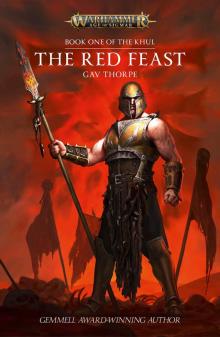 The Red Feast - Gav Thorpe
The Red Feast - Gav Thorpe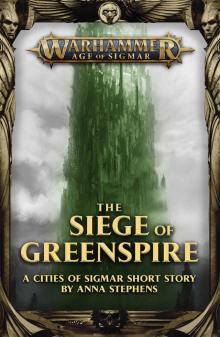 The Siege of Greenspire - Anna Stephens
The Siege of Greenspire - Anna Stephens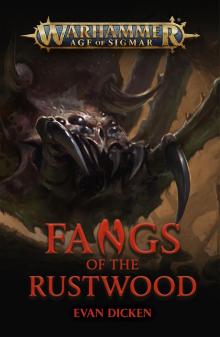 Fangs of the Rustwood - Evan Dicken
Fangs of the Rustwood - Evan Dicken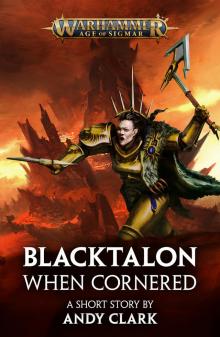 Blacktalon - When Cornered - Andy Clark
Blacktalon - When Cornered - Andy Clark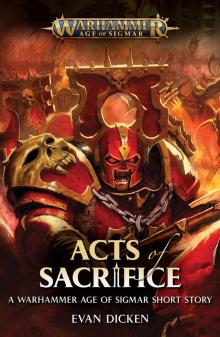 Acts of Sacrifice - Evan Dicken
Acts of Sacrifice - Evan Dicken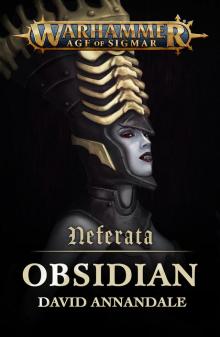 Obsidian - David Annandale
Obsidian - David Annandale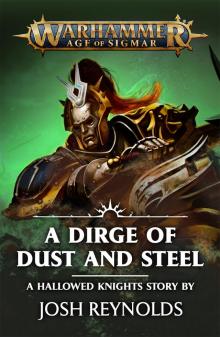 A Dirge of Dust and Steel - Josh Reynolds
A Dirge of Dust and Steel - Josh Reynolds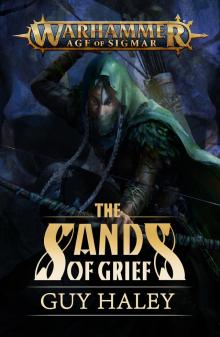 The Sands of Grief - Guy Haley
The Sands of Grief - Guy Haley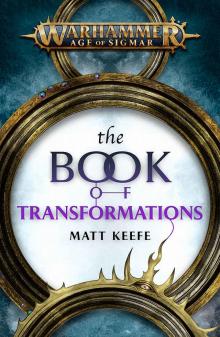 The Book of Transformations - Matt Keefe
The Book of Transformations - Matt Keefe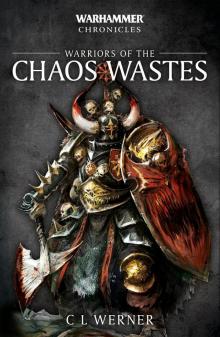 Warriors of the Chaos Wastes - C L Werner
Warriors of the Chaos Wastes - C L Werner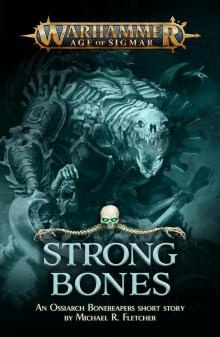 Strong Bones - Michael R Fletcher
Strong Bones - Michael R Fletcher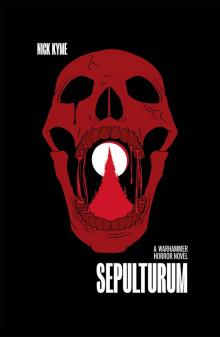 Sepulturum - Nick Kyme
Sepulturum - Nick Kyme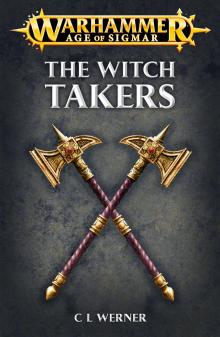 The Witch Takers - C L Werner
The Witch Takers - C L Werner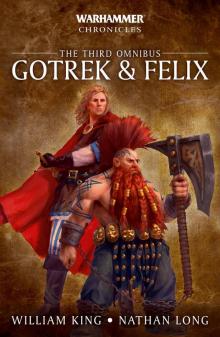 Gotrek & Felix- the Third Omnibus - William King & Nathan Long
Gotrek & Felix- the Third Omnibus - William King & Nathan Long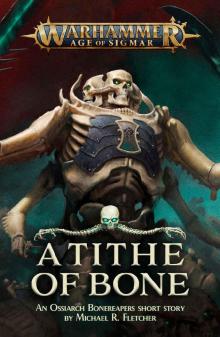 A Tithe of Bone - Michael R Fletcher
A Tithe of Bone - Michael R Fletcher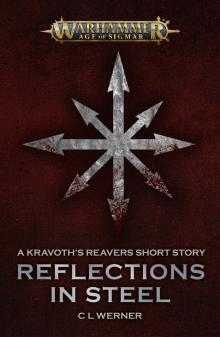 Reflections in Steel - C L Werner
Reflections in Steel - C L Werner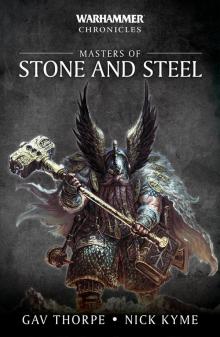 Masters of Stone and Steel - Gav Thorpe & Nick Kyme
Masters of Stone and Steel - Gav Thorpe & Nick Kyme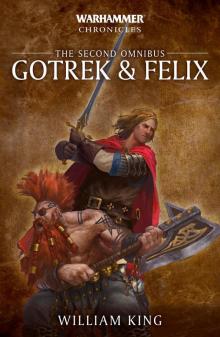 Gotrek & Felix- the Second Omnibus - William King
Gotrek & Felix- the Second Omnibus - William King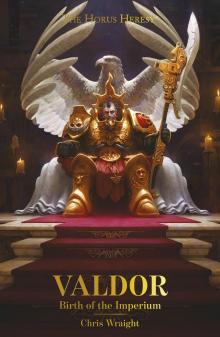 Valdor- Birth of the Imperium - Chris Wraight
Valdor- Birth of the Imperium - Chris Wraight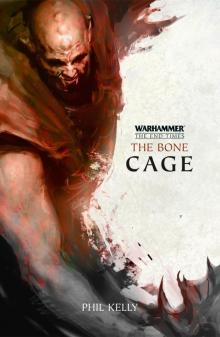 The Bone Cage - Phil Kelly
The Bone Cage - Phil Kelly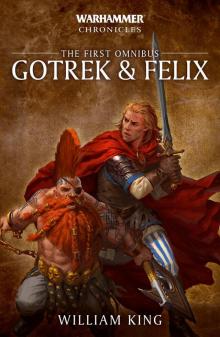 Gotrek & Felix- the First Omnibus - William King
Gotrek & Felix- the First Omnibus - William King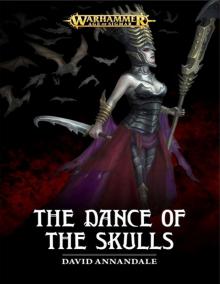 The Dance of Skulls - David Annandale
The Dance of Skulls - David Annandale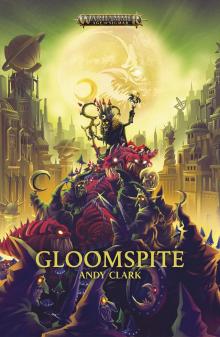 Gloomspite - Andy Clark
Gloomspite - Andy Clark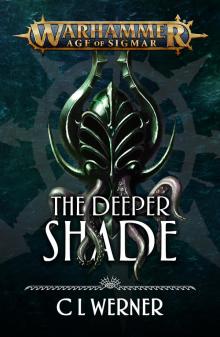 The Deeper Shade - C L Werner
The Deeper Shade - C L Werner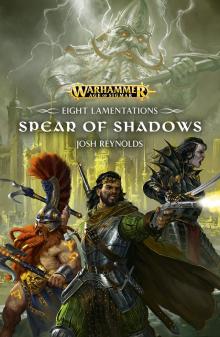 Spear of Shadows - Josh Reynolds
Spear of Shadows - Josh Reynolds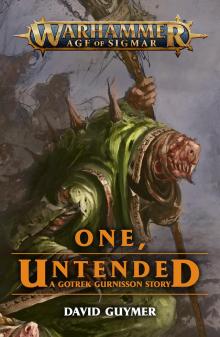 Gotrek - One, Untended - David Guymer
Gotrek - One, Untended - David Guymer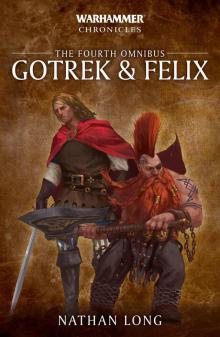 Gotrek & Felix- the Fourth Omnibus - Nathan Long
Gotrek & Felix- the Fourth Omnibus - Nathan Long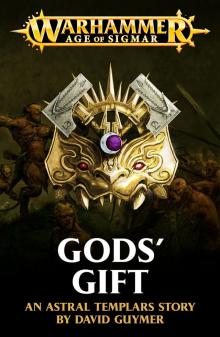 Gods' Gift - David Guymer
Gods' Gift - David Guymer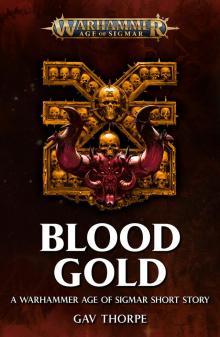 Blood Gold - Gav Thorpe
Blood Gold - Gav Thorpe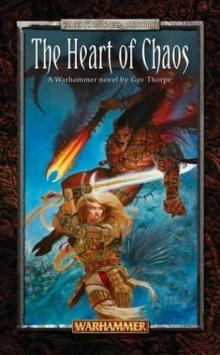 Slaves to Darkness 03 (The Heart of Chaos)
Slaves to Darkness 03 (The Heart of Chaos)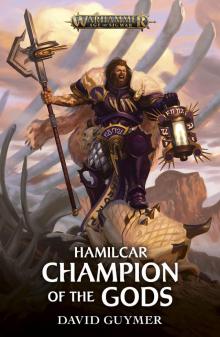 Hamilcar- Champion of the Gods - David Guymer
Hamilcar- Champion of the Gods - David Guymer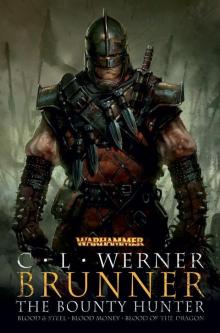 Brunner the Bounty Hunter (Blood And Steel)
Brunner the Bounty Hunter (Blood And Steel)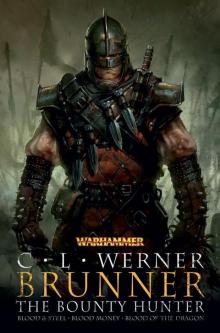 Brunner the Bounty Hunter (what price vengeance)
Brunner the Bounty Hunter (what price vengeance)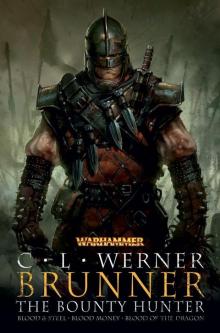 Brunner the Bounty Hunter (Blood of the Dragon)
Brunner the Bounty Hunter (Blood of the Dragon)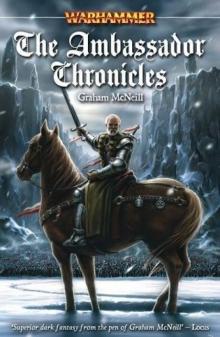 Ursuns Teeth
Ursuns Teeth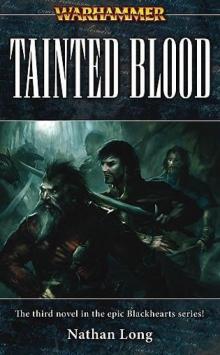 The Blackhearts Omnibus (Tainted Blood)
The Blackhearts Omnibus (Tainted Blood)![Daemon Gates Trilogy 01 [Day of the Daemon] Read online](http://i1.bookreadfree.com/i2/04/09/daemon_gates_trilogy_01_day_of_the_daemon_preview.jpg) Daemon Gates Trilogy 01 [Day of the Daemon]
Daemon Gates Trilogy 01 [Day of the Daemon]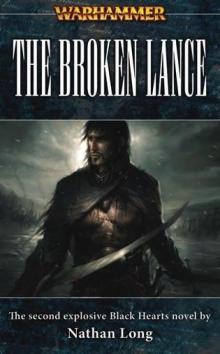 The Blackhearts Omnibus (The Broken Lance)
The Blackhearts Omnibus (The Broken Lance)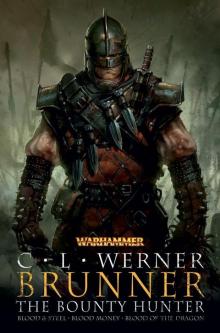 Brunner the Bounty Hunter (Blood Money)
Brunner the Bounty Hunter (Blood Money)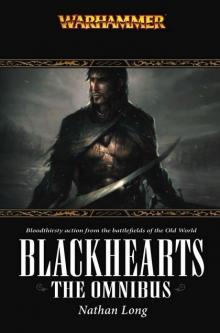 The Blackhearts Omnibus (Hetzaus Follies)
The Blackhearts Omnibus (Hetzaus Follies)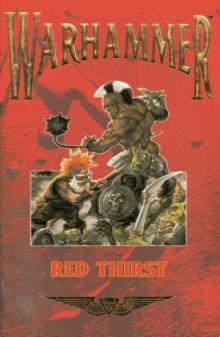 Warhammer Red Thirst
Warhammer Red Thirst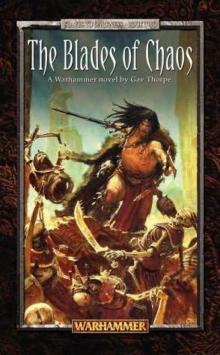 Slaves to Darkness 02 (The Blades of Chaos)
Slaves to Darkness 02 (The Blades of Chaos)